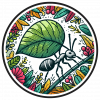The U.S. Agency for International Development (USAID), with support of its partners National Geographic, Smithsonian, and TRAFFIC, has selected 16 Wildlife Crime Tech Challenge Prize Winners.
Selected from a pool of 300 Applicants from 52 countries, Prize Winners comprise individuals, nonprofits, academic institutions, and corporations from Africa, Asia Pacific, Europe, Latin America, and North America. Winning innovations range from camera traps integrated with seismic sensors to portable electronic “sniffers” and online whistleblower platforms.
The winning solutions were exceptional innovations that looked to reduce wildlife crime by focusing on:
Detecting Transit Routes
-
Enforcement Gaps Interface: Jennifer Jacquet will use data science to fight wildlife crime online. Data Mining and Analysis
-
Realtime Global Platfrom for Mapping, Forecasting and Network Assessment of Wildlife Crime: The GDELT Project uses data algorithms to track wildlifecrime trends. Data Mining and Analysis
-
The Trade of Endangered Sea Turtle Eggs - Detecting and Monitoring Regional Transit Routes: Paso Pacifico is on the trail of poachers who steal sea turtle eggs. Sensing and Remote Sensing Technologies
-
Instant Detect - Exposing the Movement of Poachers in Real-Time: ZSL will use hidden sensors and satellites to monitor wildlife crime in real-time. Sensing and Remote Sensing Technologies

Challenge Winner GDELT Project uses data algorithms to track wildlifecrime trends.
Strengthening Forensic Evidence
-
E-Eye® (Electronic Eye) - Real-Time Anti‐Poaching, Surveillance & Wildlife Tracking System: Binomial Solutions aims to enable real-time surveillance that stops wildlife crime in its tracks. Data Mining and Analysis
-
High Throughput Short Tandem Repeat Sequence Genotyping as a Forensic Tool for the Protection of Species: Bosque Antiguo's forensic tool will identify trafficked wildlife species from Latin America. DNA Analysis or Databases
-
The JIGZAW Information Collaboration Project: Mars Omega Partnership's app enables the secure sharing of wildlife crime information. Database Solutions
-
Live Digital Invoices for Real-Time Data Analytics to Enhance Detection of Illegal WIldlife Trade: New England Aquarium will fight wildlife crime by digitizing invoices to help spot illegal activity. Database Solutions
-
Enhancing Bird Market Monitoring in Indonesia through Smart Phone Technology: Planet Indonesia's mobile app helps people secretly collect wildlife crime data in animal markets. Data Mining and Analysis

Challenge winner Paso Pacifico is on the trail of poachers who steal sea turtle eggs.
-
Universal Species Identification in the Field by Rapid and Affordable Nanopore DNA Sequencing: The University of Leicester will pilot a portable DNA sequencer that analyzes animal parts in just 1 hour. DNA Analysis or Databases
-
Internationalization of RhODIS and eRhODIS as bBenchmark Forensic Tools to Combat Wildlife Crime: The University of Pretoria uses DNA tech to track rhino parts & prosecute wildlife crime. DNA Analysis or Databases
-
Rapid Chemical Odor Profiling for Frontline Identification of Illegal Wildlife Products: The University of Technology Sydney will fight #wildlifecrime w/ an artificial nose that sniffs out illegal animal parts. Identification Technologies
-
High Throughput Methods for Locating Source Populations in the Illegal Wildlife Trade: The University of Washington aims to use DNA tech to find out where trafficked pangolins come from. DNA Analysis or Databases
-
Conservation of Threatened Indonesian Slow Lorises using DNA-based Forensic Methods to Tackle Trade: Yayasan Inisiasi Alam Rehabilitasi Indonesia (YIARI) aims to identify species and origin of captured slow lorises to tackle wildlife crime. Detection Technologies

Challenge winner the University of Washington aims to use DNA tech to find out where trafficked pangolins come from.
Reducing Consumer Demand
-
Tank Watch - The Good Fish / Bad Fish Tool for Saltwater Aquariums: The For the Fishes' Tank Watch app helps people find out if their aquarium fish were sustainably bred. Digital Media Campaign
Tackling Corruption
-
Secured Internet Crime Reporting - A Worldwide Wildlife Whistleblower Reward Program: The National Whistleblowers Centre's secure platform will help whistleblowers report wildlife crime. Whistleblower and Crowd Reporting Tools
In recognition of the innovativeness and potential to scale of their solutions, Prize Winners will each receive $10,000, technical and networking assistance to scale their solutions, and an opportunity to compete for a Grand Prize worth up to $500,000.
Learn more about these Prize Winners at the Wildlife Crime Tech Challenge website and stay tuned for updates about the Challenge Winners in the coming weeks.





Add the first post in this thread.